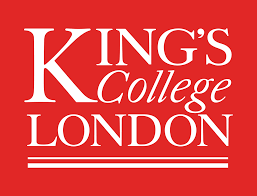 Menu
Menu
Published: 17 Aug 2023 825 views
The Tynybedw Law Bursary was founded by Mr Geraint Hughes, a law alumnus of King’s College London and partner at Clifford Chance. As someone who values his time studying at King's, Mr Hughes would like support certain students at King’s, enabling them to begin their own legal careers.
This bursary will provide selected students with sufficient funding to cover a significant proportion of the cost of attending university and is aimed at giving the recipients the opportunity to study law at King's.
The scholarships are designed to offer assistance to candidates who are in need of extra financial support to undertake their degree.
Scholarships will therefore be awarded on the basis of:
King's College London was founded by King George IV and the Duke of Wellington (then Prime Minister) in 1829 as a university college in the tradition of the Church of England. It now welcomes staff and students of all faiths and beliefs. King's professors played a major part in nineteenth-century science and in extending higher education to women and working men through evening classes. The university has grown and developed through mergers with several institutions each with their own distinguished histories. These include: United Medical and Dental Schools of Guy's an... continue reading

| Application Deadline | 31 Aug 2023 |
| Country to study | United Kingdom |
| School to study | King’s College London |
| Type | Undergraduate |
| Course to study | View courses |
| Sponsor | King's College London |
| Gender | Men and Women |
Successful applicants of the Tynybedw Law Bursary will receive £8,000 in your 1st and 2nd years and £9,000 in your 3rd and final year (repeat years or breaks in study will not be funded), and will be dependent upon continued satisfactory academic progress and attendance.
Please download and fill out the application form. You should email the completed form to [email protected] together with scanned/digital copies of your supporting documents.
For more details visit: Kings College London website.